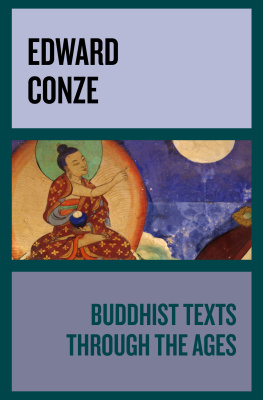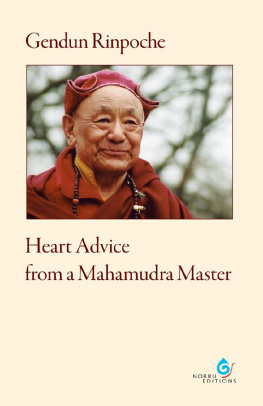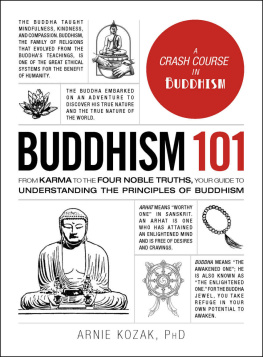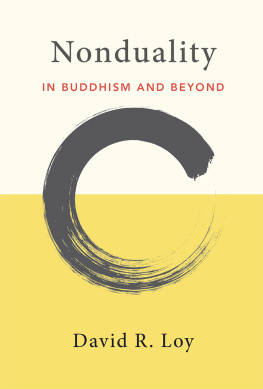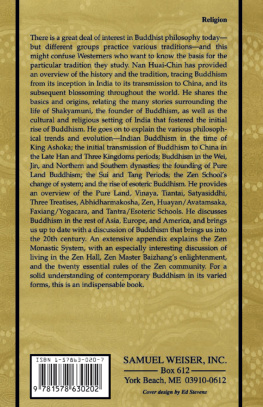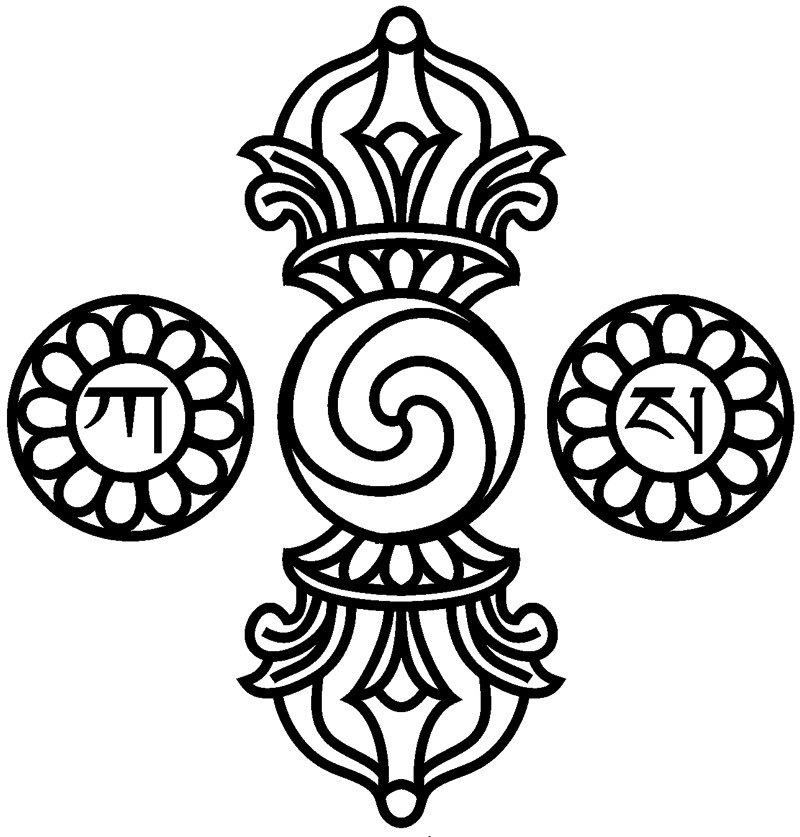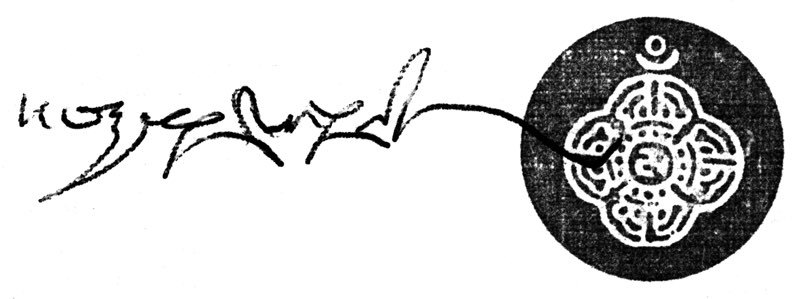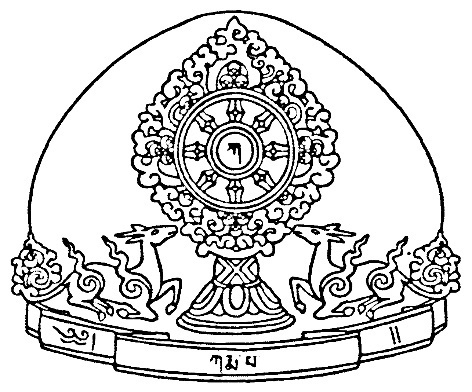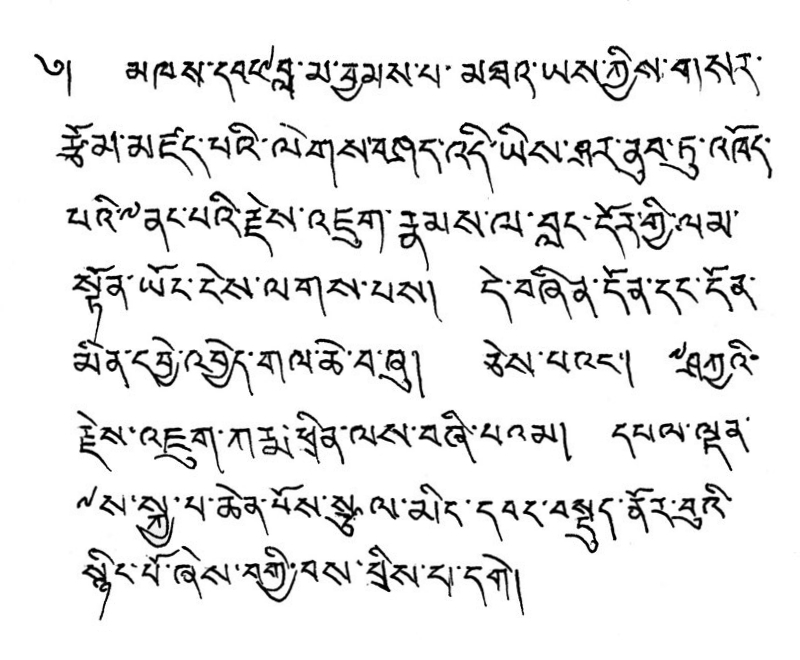Wisdom in Exile
Buddhism and Modern Times
Lama Jampa Thaye
Contents
Dedicated to my lamas
Foreword by H.H. the 41st Sakya Trizin
I am very pleased that this inspiring new book by Lama Jampa Thaye is being published.
Wisdom in Exile proposes a fresh approach to Buddhism, one in which the fundamental tenets of the Buddhas teachings are rediscovered. With the popularity that Buddhism has gained in the West over the past decades, it is essential to ensure that it remains true to its source.
In his book, Lama Jampa Thaye suggests that we re-examine our motivation in following Buddhism, making sure that our deepest aim is to attain liberation for the sake of all beings, and that our core practice is the cultivation of ethics, wisdom and compassion.
Wisdom in Exile provides excellent advice on how to avoid wrong views regarding Buddhism and how to build infallible foundations for our practice.
I pray that this work may bring precious guidance to students of the dharma and help them to swiftly progress on their path to liberation.
The Sakya Trizin, Sakya Dolma Phodrang, Rajpur, India, 20 th January 2017
Foreword by H.H. the 17th Karmapa, Trinley Thaye Dorje
D ear readers, it is my pleasure to contribute a short foreword to Lama Jampa Thayes latest publication, Wisdom in Exile .
Lama Jampa Thaye is a meditation master and scholar of both the Sakya and Kagyu traditions of Tibetan Buddhism, and as such has undergone rigorous traditional training with his Tibetan teachers.
At the same time, he is a Westerner and has been brought up in a Western environment. As such, he understands the mentality and background of Western students of the Buddha dharma.
Over the past few decades, Buddhism and particularly Tibetan Buddhism has attracted a great many followers in the West. While the students are genuine in their devotion and dedication to their freshly discovered spiritual path, most of them are relatively new to the teachings of Buddhism. This may lead them to misguidedly believe that the tenets of their own cultural and spiritual traditions and the actual teachings of Buddhism are one and the same.
Therefore, I think that this book will be beneficial in helping Western practitioners to avoid some of the pitfalls of cultural and spiritual misunderstanding.
May it be of benefit to countless beings!
With prayers,
The 17 th Karmapa Trinley Thaye Dorje, New Delhi, 15 th February 2017
Foreword by Karma Thinley Rinpoche
T he scholar Lama Jampa Thaye has recently composed this text so that those following the Buddhist teaching newly established in the West may be certain concerning the paths to be adopted and rejected. Since it is very important to discriminate between the authentic and inauthentic, please pay attention to it.
Written by the follower of the Buddha who is known as the Fourth Karma Thinley or, according to the Great Sakyapa, known as Wangdu Norbu Nyingpo.
Introduction
W e live in a time when it can appear that the road to wisdom has been lost and its very existence forgotten. In its place is merely a dead-end street full of stale ideologies. Yet the path that Buddha set forth some two-and-a-half millennia ago is still there for us, even in these modern times, if we care to find it.
This present work is essentially a series of essays on the encounter between Buddhist teachings and the West. However, it is not a formal introduction to Buddhism nor a systematic exposition of Buddhist thought. There are many of these available. Neither does it claim to represent the whole of Buddhism. Inevitably, it reflects my understanding of the particular set of teachings and practices in which I have been trained by my Tibetan masters.
Buddhism itself developed out of the teachings given by the warm and friendly South Asian prince known to his followers as The Sage of the Shakyas. At the heart of these teachings is the insight that suffering arises primarily from our mistaken ideas about ourselves and the nature of the world errors that prompt the arising of a confluence of disturbing emotions and actions. According to Buddha, liberation from suffering is always possible, through the transformation of our error into understanding, brought about by training in the three-fold path of ethics, meditation and wisdom. Thus, despite its ancient origins, Buddhism would seem to be uniquely well suited to the modern world.
The first half of this work considers the space that now exists for Buddhism in our culture. This is a space that has been opened up by the failure of our dominant systems of thought to provide an intelligent account of what it is to be human and how we should conduct ourselves in this world.
However, although this space exists, if Buddhism is to fill it effectively, the temptation to assimilate it to contemporary ideologies must be resisted. Nothing could be more destructive for Buddhism in the long run. With this point in mind, the latter chapters of this book consider how best the Buddhas teachings might be understood and practised today. There has been considerable enthusiasm directed to these subjects, but it is vital that we discriminate between authentic and fake presentations, the latter being those proffered by self-appointed authorities, which are thus unconnected with the unbroken traditions of teaching and practice, and, furthermore, whose presentations are refuted by direct experience or reasoning. All too often, through a mixture of conceit and credulity, we have settled for the latter. Unfortunately, if we persist in getting Buddhism wrong in this way, the opportunity for it to shape our lives will be lost and Buddhism itself is likely to remain in cultural memory as nothing more than a temporary fad another Theosophy.
Wisdom in Exile draws from the teachings I have received over the past five decades from His Holiness the 41 st Sakya Trizin, Karma Thinley Rinpoche and various other Tibetan teachers, and, as such, it refers extensively to works composed by eminent masters of the Buddhist tradition. Therefore Ive included a list of these masters at the end of this book, if only to make their names a little better known.


